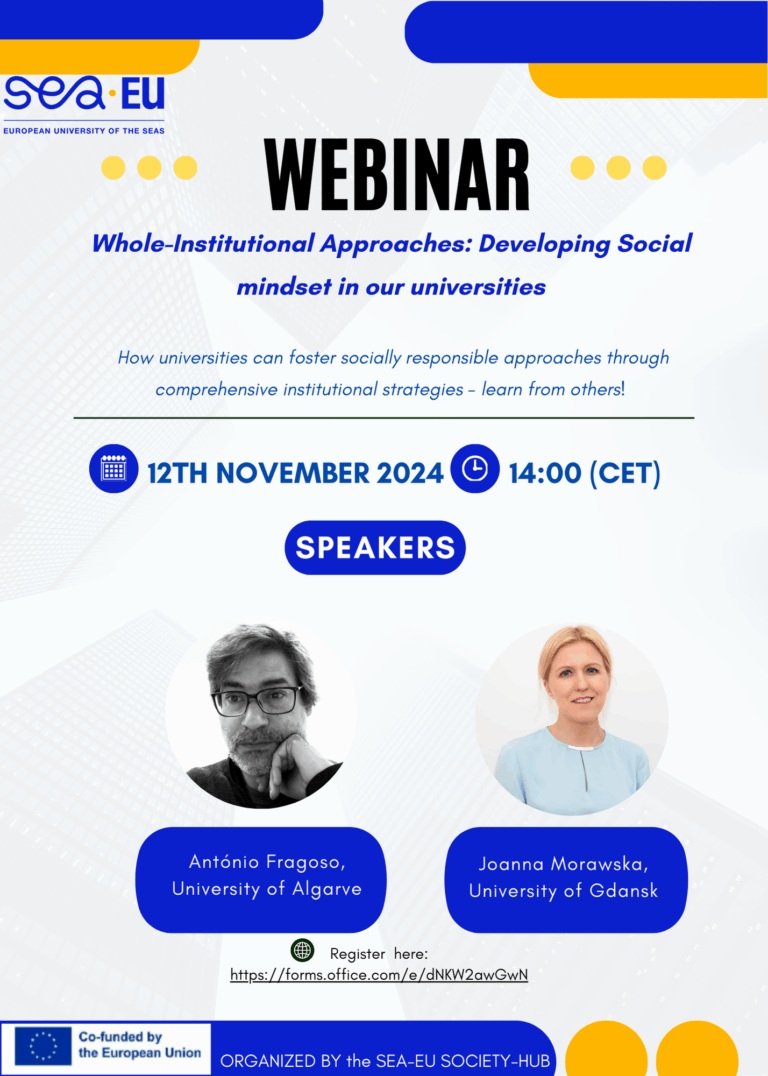
Invitation to the 2nd SOCIETY HUB Webinar: “Whole-Institutional Approaches: Developing a Social Mindset in Our Universities”
We are delighted to invite you to the 2nd SOCIETY HUB Webinar on the theme “Whole-Institutional Approaches: Developing a Social Mindset in Our Universities.”
This event will focus on how universities can foster socially responsible approaches through comprehensive institutional strategies. Don’t miss this opportunity to learn from the experiences of other SEA-EU institutions!
During the webinar, we will explore innovative practices such as Participatory Budgeting and Science Shops, which have successfully engaged students and staff in co-creating socially responsible initiatives.
Our distinguished speakers will be:
- António Carlos Pestana Fragoso de Almeida, University of Algarve
- Joanna Morawska, University of Gdansk
Join us to gain valuable insights and share ideas on how to develop a socially responsible mindset within your institution!
Date and Time:12th November 2024
Platform: Zoom platform
Registration Link: https://forms.office.com/e/1TkqMERzak
Participatory Budgeting in Higher Education: the case of the University of Algarve
Today, there is a great variety of participatory budgeting (PB) processes at different territorial levels and with different objectives, most of them related to public participation, learning citizenship and democracy. However, PB processes in higher education institutions are rare. We will describe and analyse the PB processes in the University of the Algarve (started in 2023) and try to understand what are their potentials and limitations.
Science Shop: the case study of the University of Gdansk
Science Shops are not “shops” in the traditional sense of the word. They are small entities that
carry out scientific research in a wide range of disciplines on behalf of citizens and local civil
society and are free of charge. The fact that Science Shops respond to civil society’s needs for
expertise and knowledge is a key element that distinguishes them from other knowledge
transfer mechanisms.
